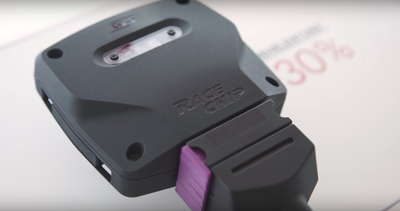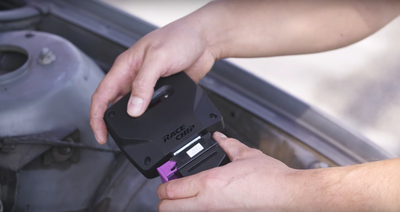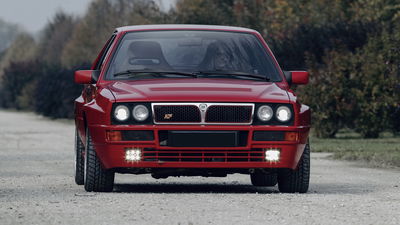Your Questions About RaceChip Tuning Answered

When Car Throttle first partnered with RaceChip to increase the power of our 330D track weapon, we were flooded with all kinds of questions. To get the answers to the most popular, we headed over to the tuning firm’s HQ in Germany, where we spoke to Fabian and Daniel.
Here’s what we found out…
Does Racechip even use a dyno?
The answer is yes - extensively! RaceChip’s Maha rolling road with its custom cooling system is constant use. Typically, a car will be dyno’d 25-30 times during the development of a RaceChip. Some engines require far more testing - RaceChip spent a year perfecting its product for VW Group’s 1.5-litre ‘Evo’ engine.
What's the difference between an ECU flash and a piggyback?

If you have an ECU tune, the stock settings are overridden. An external ‘piggyback’ system like the RaceChip, on the other hand, modifies the standard sensor values and sends them to the ECU, giving the same outcome without fiddling with the ECU’s factory setup. This means that all of the standard ECU protection systems are still in place. A RaceChip is also 100 per cent reversible, and leaves no trace once unplugged.
What signals does a Race Chip actually change?

The signals which are manipulated will vary from car to car. They can be separated into two main categories: active and passive. Active changes can include things like boost pressure, intake pressure and fuel pressure. The passive changes are all about what the ECU will try and do to in response to the active changes - for instance, upping the boost pressure will cause the ECU to alter the ignition timing. These values will be carefully controlled by the RaceChip to ensure everything is kept within safe parameters.
How does a RaceChip affect fuel economy?

A RaceChip can improve fuel economy. As engine torque increases, you will at times be able to leave the car in a higher gear than you might have done before without the engine struggling. If you’re especially interested in saving fuel, there’s also a dedicated Eco mode that can be selected via the RaceChip app.
If you want to find out more, head over to RaceChip.com.














Comments
I don’t see why people dislike them.
It’s literally a like a second ECU that doesn’t need wiring expertise to install.
most of the hate comes from the fake piggyback “Performance” chips that were on the market quite a few years ago, some probably still are. All those chips did for most vehicles was sharpen the throttle response and tweak some other unimportant values to make the car “feel” faster by making it slightly more responsive in some areas instead of actually making more power.
Of course once people found this out the distrust and hate directed at any tuning “chip” companies is damn near palpable, and with most people refusing to try it, disregarding every new entry as snake oil and those who do try it are labeled as gullible idiots.
All in all, a vicious circle, it’s going to be hard for any tuner in that sector to prove their products for a while to come. Gas engines might go extinct before any reputable car forum embraces Piggyback chips again.
maybe i should put one in my beetle.. if they made one for it